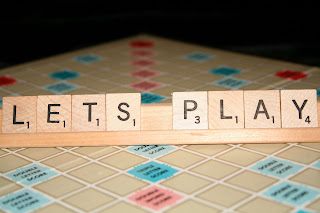Recently I saw a dance performance by a 3-year-old boy on "China's Got Talent". When asked why he danced he said he did it because it made people laugh, and that people who laugh are happy. So he wanted to keep dancing so he could keep making people happy.
There are a number of lessons in this for all of us. Yes, no matter our age we can learn lessons from a 3-year-old.
The first lesson is the link between laughter and happiness. This is very important. Of course, whatever makes us laugh can of itself give us happiness. I was certainly happy watching that little boy, and not simply because I was laughing. But the act of laughing or smiling itself makes us happy, even if there is nothing there that should be making us laugh. Even forced laughter makes us happy. It may seem false to laugh when there is nothing to laugh about, and we may initially just be forcing laughter we don't actually feel, but keep forcing that laugh and you will find it creates a significant mood change anyway.
Just in case you don't believe me, I want you to try an experiment. Start laughing right now. It doesn't matter that nothing funny is happening. Laugh anyway. Don't say "I can't laugh unless there is something funny". Just open your mouth and make the sound. Don't worry that it doesn't sound quite right, just keep doing it. Soon you will find it turns into natural laughter - even if that is only because you are laughing at your silly attempts to laugh! Now that you have done that, how do you feel? Miserable? I think not! You will find you feel happier than you felt before. This works particularly well when you are miserable, as there is a very clear contrast.
This is a very important lesson. If you want to change your mood, simply change it by doing whatever is associated with the mood you want. That association will attract the mood. Most people think they only laugh because they are amused, but what they don't realize is that it also works the other way around. They can become amused simply by laughing.
Laughing is very infectious. In her poem "Solitude", Ella Wheeler Wilcox said "Laugh, and the world laughs with you", and how true this is! The little Chinese boy understood that if he could get some people to laugh they would be happy, and also that this happiness would spread as more and more people laughed.
This means it is really very easy to create happiness in the world, to make people around you happier than they were. Laugh. And do things to make others laugh. That little boy knew this, and at only three years old he was putting this in practice.
I like to laugh and smile whenever I can, and to help those around me laugh and smile too. I know this is the way to make this world a better place. Every day I make at least one person happier by laughing or smiling is a day well worth living, a day when I have added something good to this world. And it is so easy to do. So much easier than all the wonderful ideas so many people have about making the world a better place; ideas that may be great ideas but that are very difficult to realize, consistently, day after day. Just laugh and smile!
And to me that is perhaps the biggest lesson this lovely Chinese boy has imparted to us. That it is our role in life to make people happy. Be happy yourself and help to make those around you happier. Do this, and you will know that each day you really are making the world a better place, that the world really is a better place simply because you are there doing what you do. Wouldn't that be a lovely epitaph to have when you eventually passed away? "He made the world a better place!" "She made the world a better place!" Well, this really can be your epitaph. You don't have to do anything spectacular to earn this epitaph. Simply make sure that each day you do what you can to make those around you happier. Do this by trying to laugh and smile as much as you can.
I shall end this little lesson by quoting the entire poem "Solitude". Read it and take it to heart:
Laugh, and the world laughs with you;
Weep, and you weep alone;
For the sad old earth must borrow its mirth,
But has trouble enough of its own.
Sing, and the hills will answer;
Sigh, it is lost on the air;
The echoes bound to a joyful sound,
But shrink from voicing care.
Rejoice, and men will seek you;
Grieve, and they turn and go;
They want full measure of all your pleasure,
But they do not need your woe.
Be glad, and your friends are many;
Be sad, and you lose them all,—
There are none to decline your nectared wine,
But alone you must drink life’s gall.
Feast, and your halls are crowded;
Fast, and the world goes by.
Succeed and give, and it helps you live,
But no man can help you die.
There is room in the halls of pleasure
For a large and lordly train,
But one by one we must all file on
Through the narrow aisles of pain.







